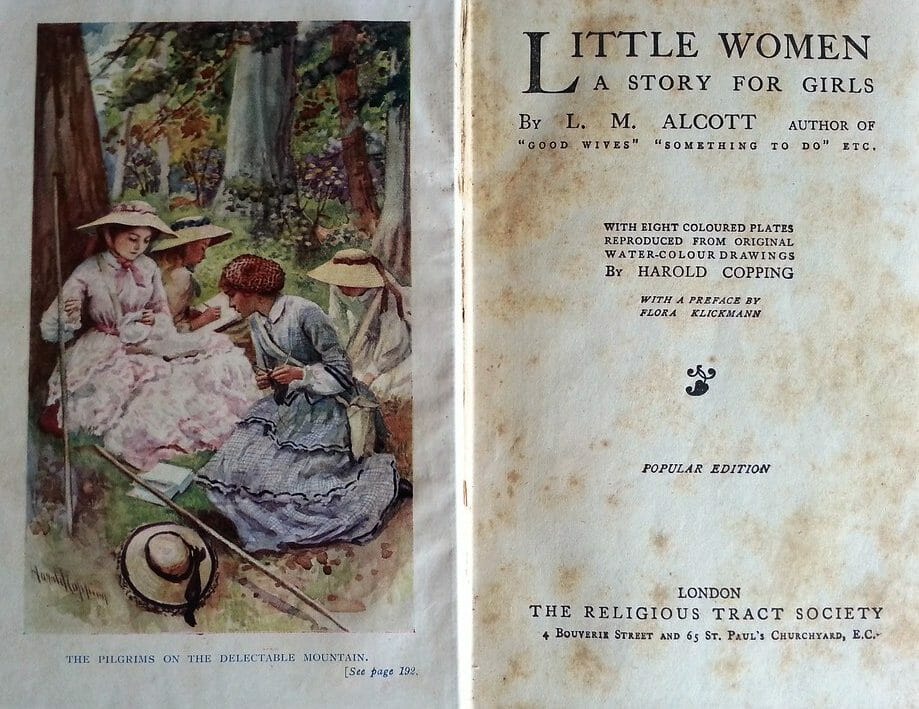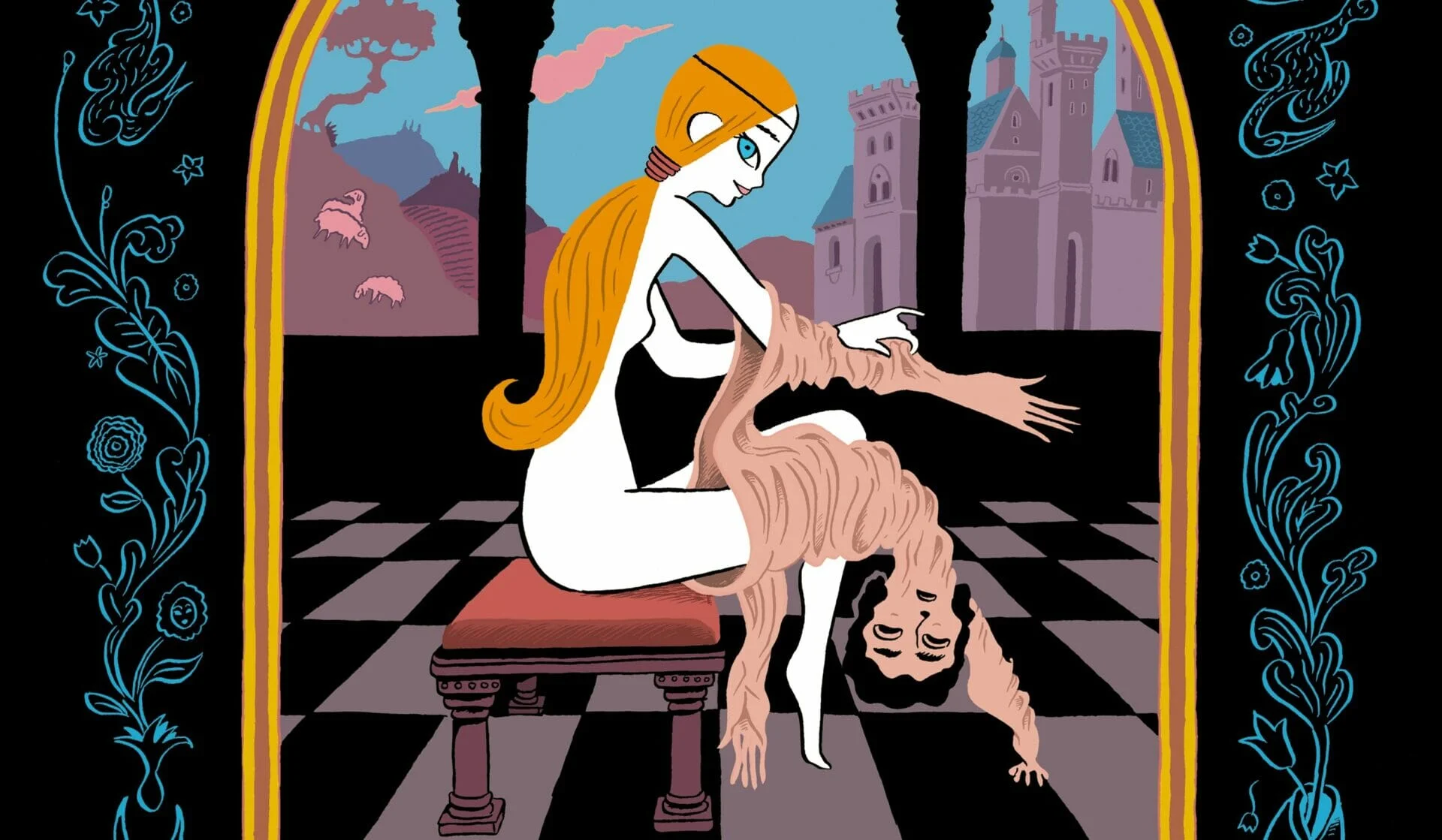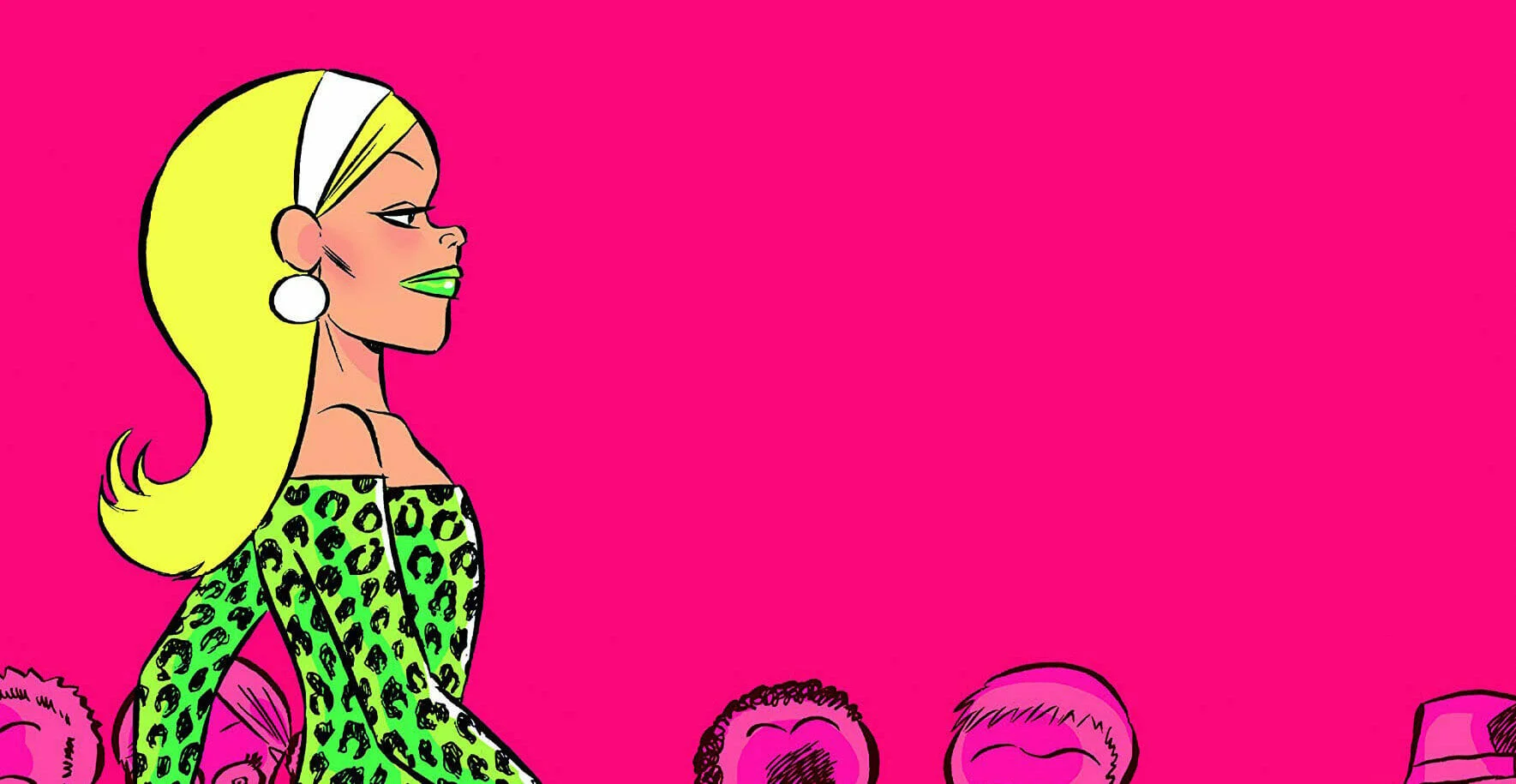
Cinzia by Leo Ortolani is an ironic look into the struggles of a transgender woman
Author
Year
Before she died, my grandmother told me:
“Paul is not a bad name… But it is not yours. If you’d like, you can use mine.
Besides, I do not need it anymore.”
Captions fade as the train on which the protagonist travels disappears into a tunnel. The title of the story emerges from the silence. This cinematographic beginning captures the key balance of tones in Cinzia, the first graphic novel by Leo Ortolani. The story of a transgender woman struggling with herself and society to express her identity.
The author is popular in Italy for his well-known comic series Rat Man. However, this time the protagonist is not the superhero, but a beloved side character: Cinzia Otherside. The novel retains the unapologetic sense of humor that has made Ortolani’s works unique. However, this time, he uses it as a way to give voice to themes of identity and acceptance. A tricky feat handled with a desired balance between comedy and reflection. After its release in 2018 in Italy by Bao Publishing and its presentation at Lucca Comics and Games, it has been greeted with open arms by the public.
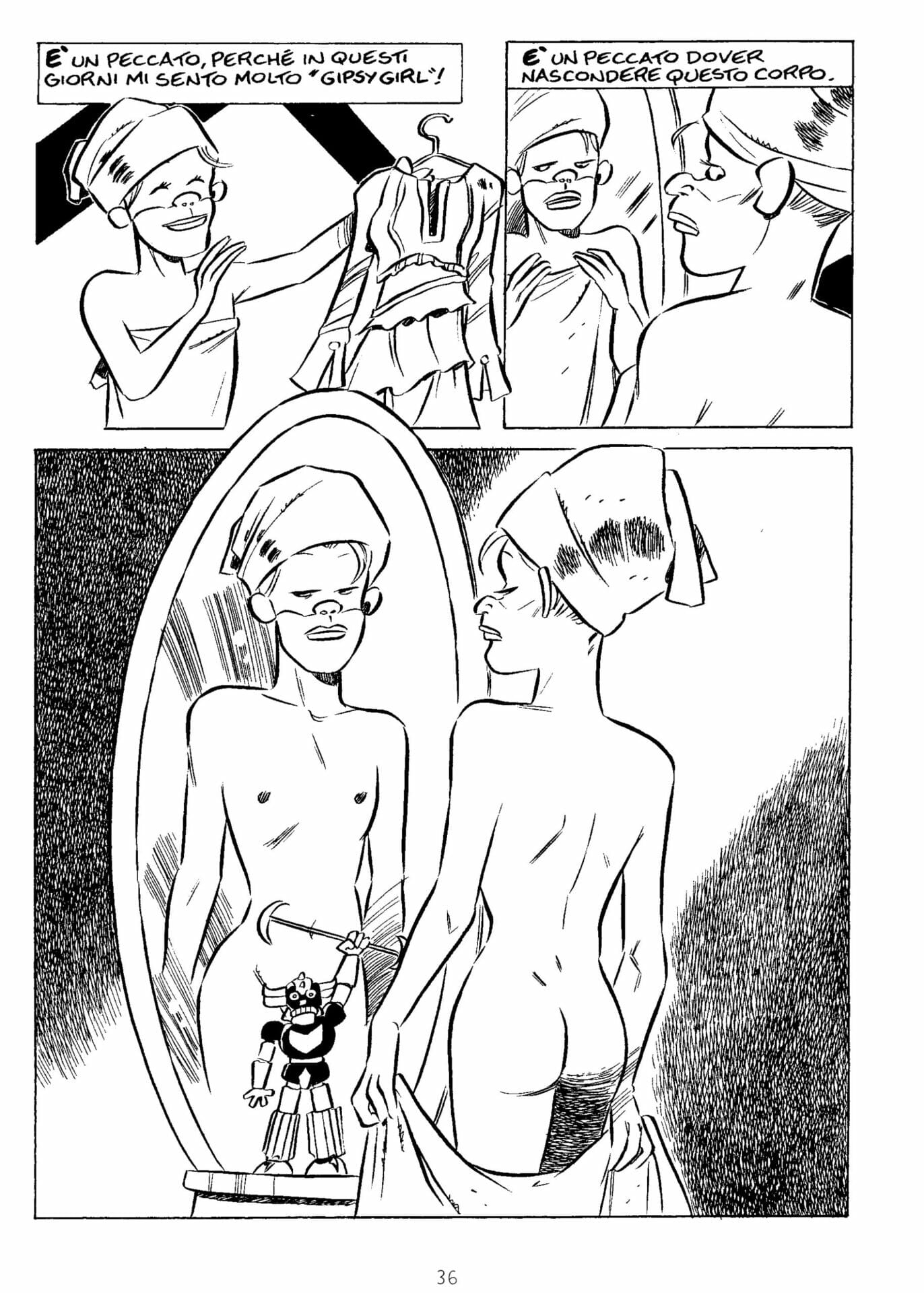
A heroine in the making
The platinum blonde transgender woman has been a recurrent character since the very beginning of Leo Ortolani’s works. Her first appearance in Rat Man – when she was still Paul the postman – was nothing more than a gag. But it then became clear that she had great potential, explored in this graphic novel.
The story follows a protagonist who is no longer Paul but not even Cinzia yet, still learning how to be her true self. A heroine on a quest to find her place in a world that judges on appearances. And in the eyes of which she, like anyone who does not conform to its rules, is nothing but a dark spot to erase.
She faces a harsh growing process, both inner and outer, well represented in the scene featuring Noah’s arc. The patriarch keeps on denying Cinzia’s request to be allowed on board, no matter her attempts to prove her worth. A blunt reminder of the difference between the right to exist and the fight for it, that many still face today. A theme that also emerges in the autobiographic works of transgender comic artist Fumettibrutti, through her open criticism of modern society.
Not your conventional (self-)love story
Cinzia Otherside, who struggles to get a job due to her sexual identity, falls for Thomas, a man met at a café. To pursue this new love, she will not hesitate to sacrifice what she holds dearest: her identity. It is in the shoes of her former self Paul that she manages to find employment at Thomas’ workplace, only to discover a disheartening truth. He works for an association that supports traditional families and openly condemns any form of diversity.
An impossible love story, and yet Cinzia is ready to fight for a chance at happiness, even if fleeting. It is through the said journey that the depth of the story is revealed. It depicts a lead character that the reader witnesses both at her best and her lowest. When stuck between the affection for a man unable to accept himself and an LGBTIQ+ community she no longer feels part of.
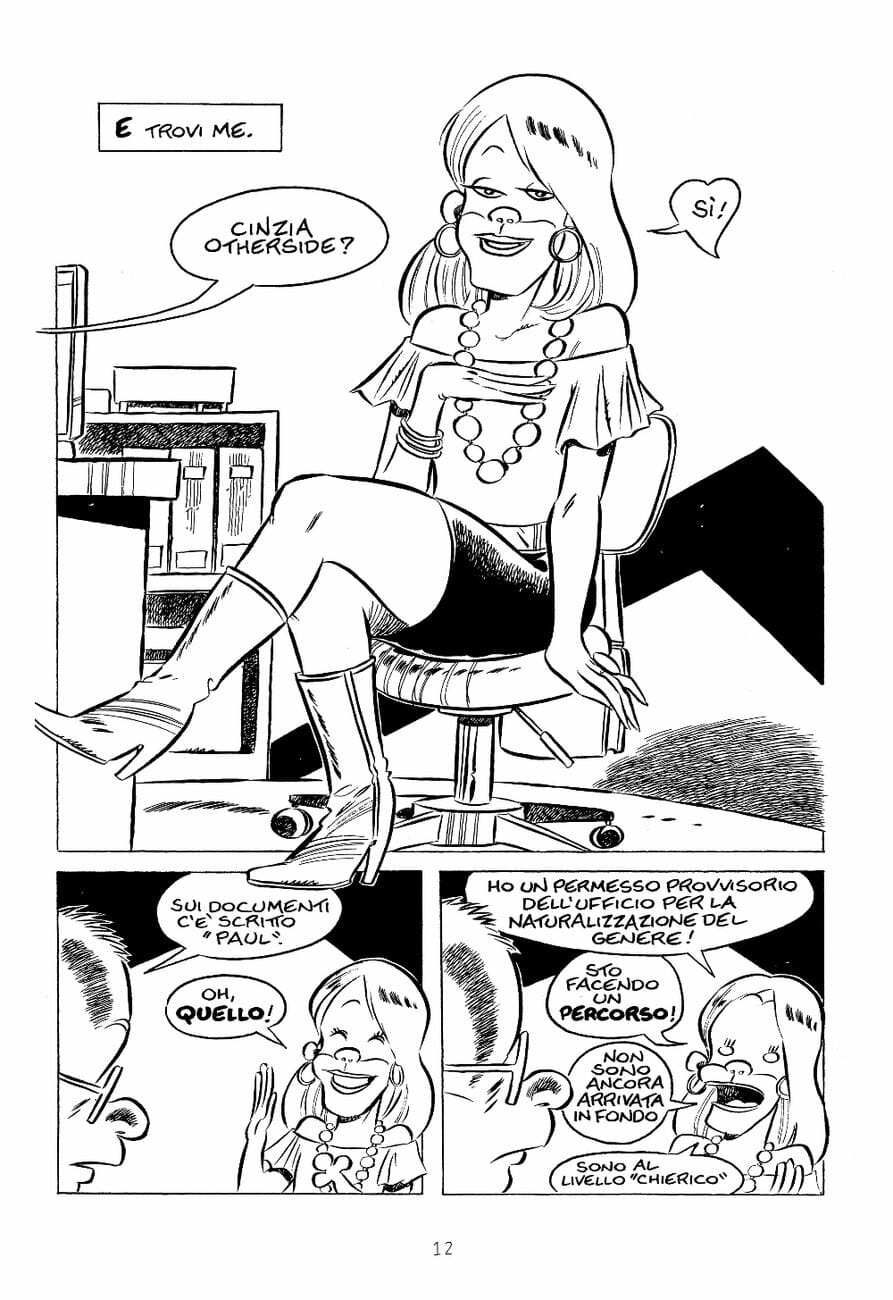
Nevertheless, she rises from the ashes, in a crescendo that speaks to the reader’s sensitivity on multiple levels. For it becomes apparent that, in order to find happiness, one must first love themselves. It results in intimate storytelling about self-acceptance, such as the documentary I’m Gonna Make You Love Me. Cinzia knows who she is, even when the world tries to reject her.
Cinzia: an iconic example of the humor of Leo Ortolani
Ortolani’s comics have always stood out thanks to their characteristic humor, which ranges from sharp irony to teasing gags. The narration in Cinzia is no exception to the rule, though in this case comedy takes on a double role. On the one hand, it lightens the tone when needed, granting a fluid story rhythm that keeps the reader engaged. On the other, it manages to convey themes as complex as identity and sexuality in a lighthearted and yet not diminishing way. An approach shared by the Japanese author Kabi Nagata in her manga My Lesbian Experience with Loneliness.
Surely, with Cinzia Leo Ortolani doesn’t lean towards the sensitive approach of other transgender stories, like The Danish Girl, where the transition of Einar Wegener is shown in all its fragility, without any humorous relief. The graphic novel pokes fun at everyone, from modern society to the LGBTQI+ community, without ever being degrading. Instead, it stimulates a reflection, able to deliver profound concepts and makes them memorable with well-timed jokes. Such use of comedy is what made other Italian works like Zerocalcare‘s series Tear along the dotted line remarkable. Ortolani appeals to all readers with its profound message and ironic approach, sure to spark some reflection among its audience.
Tag
Buy a ☕ for Hypercritic





